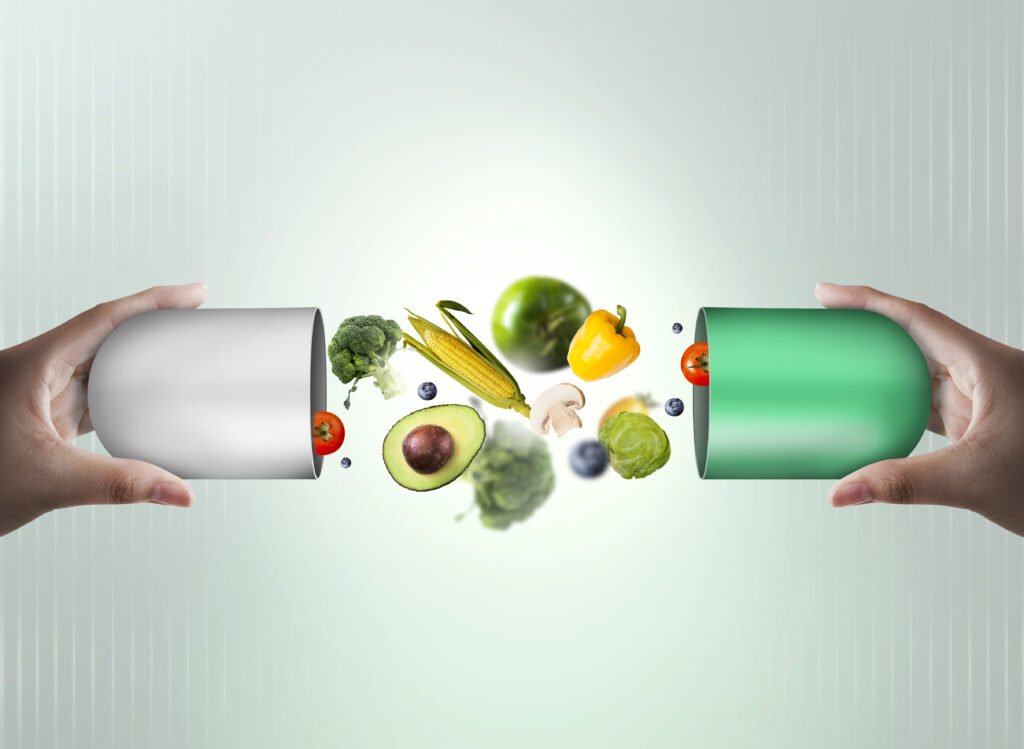Dietary supplements are a relatively broad concept, which is a product set spanning health foods and general foods. Based on studying the definition and management of nutrition and health products in different countries and regions, the definition of dietary nutritional supplements has been clarified. Dietary supplements (Vitamin & Dietary Supplements, VDS) refer to vitamins, minerals, and animal and plant extracts as the main raw materials, by supplementing essential nutrients and biologically active substances for the human body, it has a balanced nutritional intake and regulation for specific groups of people Nutritional and healthy products for the function of the body. Dietary supplements are not intended to treat diseases, nor can they replace normal diet, and do not cause any acute, subacute, or chronic harm to the human body.
Due to the differences in the habits and scope of control in different countries, there is a large gap in the definition of nutrition and health products in different countries and regions. China, the European Union, Japan, and other countries or regions have listed nutrition and health products in the food category, and Australia has been administered as a supplementary drug category.

1. American Nutrition and Health Product Management System
The legal name for nutrition and health products in the United States is dietary supplements, which refers to a product (not tobacco) designed to supplement the diet. It may contain a vitamin, a mineral, an herb (herbal) or other plants, an amino acid, a food ingredient used to increase the total daily intake to supplement the diet, or one of the above ingredients Concentrates, metabolites, ingredients, extracts or combination products, etc.
Dietary supplements in the United States have no access management. Products containing new ingredients must be reported 75 days before. Products containing functional claims must be notified to the Food and Drug Administration (FDA) 30 days before marketing. New health claims are subject to a licensing system. The relevant law for nutrition and health products in the United States is the Dietary Supplement Health and Education Act.
2. EU Nutrition and Health Product Management System
The legal name of EU nutrition and health products is food supplements, which refer to foods used to supplement the daily diet. They contain concentrated nutrients or other substances with nutritional or physiological effects in the form of single or combination, including but not limited to vitamins and minerals. Substances, amino acids, essential fatty acids, cellulose and various plant and herb extracts. Food supplements in the EU are mostly subject to pre-marketing filing or post-marketing supervision. The relevant law is the “Food Supplements Act” (2020/46, EC).
3. Canadian Nutrition and Health Product Management System
The legal name of Canadian nutrition and health products is natural health products, and the relevant law is the “Natural Health Products Regulations” (NHP), which adopts the management method of filing or registration. The natural health product refers to products produced with substances listed in the NHP, homeopathic medicines, or traditional medicines. Natural health products are produced, sold, and used for the following purposes: ①diagnose, treat, alleviate or prevent diseases, human dysfunctions and their symptoms; ②restore, correct or regulate body functions; ③maintain or promote health.

4. Australia Nutrition and Health Product Management System
The legal name of Australia’s nutrition and health products is supplementary drugs, and the relevant law is the “Guiding Principles for Complementary Medicine Products”, and the management method adopts registration and registration. Among them, high-risk ingredients and high-level claims need to be registered, and low-risk products must be registered. The supplementary medicine refers to a therapeutic product composed entirely or mainly of one or several active ingredients, and the various active ingredients contained in it have been identified and have the following uses: ①Traditional use; ②In the “Regulations on therapeutic products” Any other purpose specified. Supplementary medicines include herbal medicines, vitamins, minerals, nutritional supplements, aromatic vegetable oils, and homeopathic products. The dosage forms are tablets, capsules, and powders, etc., which can have function claims and be managed as medicines.
5. Japan’s Nutrition and Health Product Management System
The legal names of Japanese nutrition and health products are foods for specific health use (known internationally as “FOSHU”) and foods with nutritional functions. The relevant laws are the “Health Functional Food System” and the “Nutrition Promotion Law”, and the management method adopts individual licensing, filing, and association supervision. Specific health foods refer to foods with physiological functions plus standard nutritional or sensory properties, which must be officially approved by the government and can be claimed to have a regulatory effect on the body. Nutritional functional foods refer to health functional foods to supplement specific nutritional ingredients, and the type and content of the ingredients must meet the standards established by the Ministry of Health, Labour and Welfare.
6. China’s nutrition and health product management system
China adopts a dual-track system of filing and registration for the management of nutrition and health products, and the legal name is a health food. Health foods refer to foods that are claimed to have specific health functions or supplement vitamins and minerals. They are suitable for special populations. They have the function of regulating the body, are not aimed at curing diseases, and do not cause any acute or subacute effects on the human body Or chronically hazardous foods. The relevant laws and regulations of China’s nutrition and health products are the “Food Safety Law of the People’s Republic of China” and the “Administrative Measures for the Registration and Filing of Health Foods”. China’s nutrition and health products include prepackaged foods, health foods, and other special dietary foods. As a general food management, pre-packaged foods do not require special pre-market approval, but cannot claim functions; other special dietary foods meet the needs of special populations and need to meet relevant standards. The following focuses on the introduction of the regulatory system and the current status of healthy foods that can be claimed in China.
Health foods have the same characteristics as general foods, but they also have functions that are different from general foods. They can regulate certain functions for a specific population; they are not medicines and cannot treat diseases, but are foods that can regulate the body. According to the current management system, health foods can be divided into two categories: one category is functional products aimed at regulating human body functions, currently includes 27 functions, and is currently approved for marketing through registration approval; the other category is nutrient supplements, Nutrient supplement products to supplement vitamins and minerals. Nutrient supplements that meet relevant requirements, such as raw materials and standards, can obtain marketing authorization by way of filing.
-1024x766.jpg)
China’s laws and regulations are divided into four levels: laws, administrative regulations, departmental rules, and regulatory documents. Among them, health food is based on the “Food Safety Law of the People’s Republic of China” as the basic law, the administrative regulations are the “Implementation Regulations of the Food Safety Law of the People’s Republic of China (Draft)”, and the departmental regulations include “Health Food Registration and Filing Management Measures” and “Food Production License” Management Measures, “Food Business License Management Measures”.
According to Article 5 of the “Food Safety Law of the People’s Republic of China”, the competent authorities of the Chinese dietary supplement industry include the Food Safety Commission, the State Administration for Market Regulation (SAMR, referred to as the General Administration of Market Supervision), the Health Commission, the General Administration of Customs, etc… The Food Safety Committee established by the State Council is responsible for analyzing the food safety situation, researching and deploying, and coordinating and guiding food safety work; the General Administration of Market Supervision is responsible for proposing major food safety supervision policies and measures, and supervising the implementation of food safety supervision responsibilities; the Health and Health Committee is responsible for food safety risk assessment, Standard formulation and management of new food raw materials and food additives; The Product Import and Export Food Safety Bureau under the General Administration of Customs is responsible for matters related to food import and export.
The bottem line:
The well-known American economist Paul Pilzer referred to the health industry as the global “fifth wave of wealth” after the IT industry in the “Fifth Wave of Fortune”. In developed countries, the health industry has become a powerful driving force for the growth of the entire national economy. The output value of the health industry accounts for more than 15% of the gross domestic product (GDP), while the output value of China’s health industry only accounts for 6.4% of the domestic GDP. Development potential. Besides, with the development of the economy and the awakening of consumers’ health awareness, the market size of China’s nutrition and health products has been in a stage of rapid growth. At present, the dietary supplement market in Asia has surpassed Europe, becoming the world’s second-largest consumer market for dietary supplements, and China is the largest consumer market for dietary supplements in Asia.

